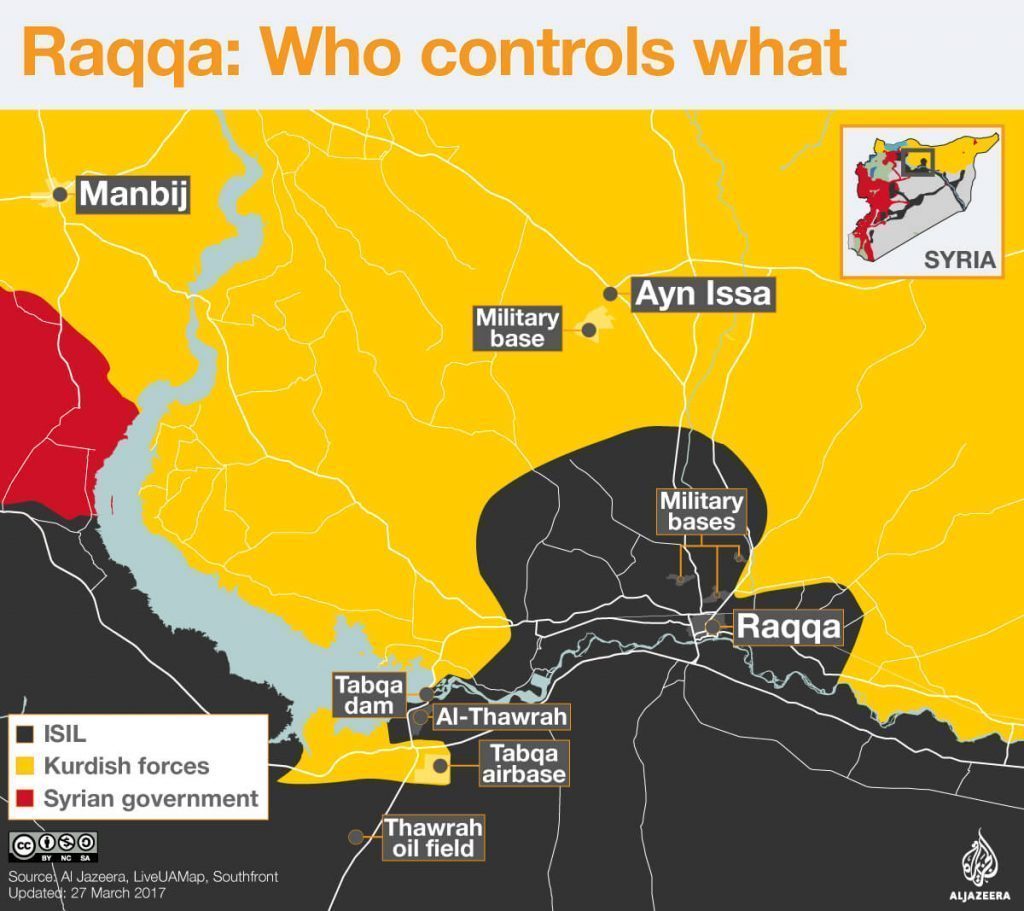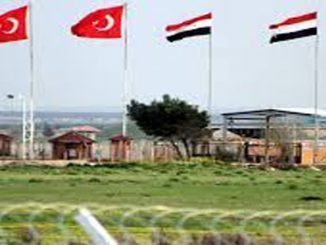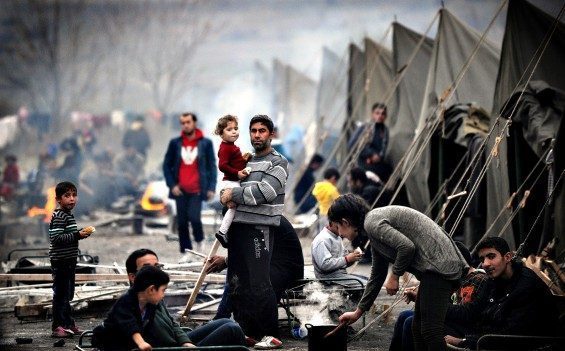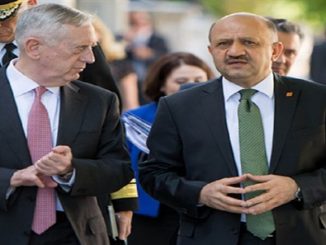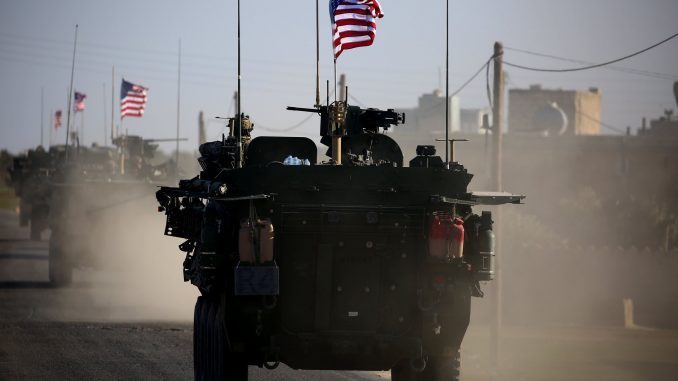
In a new significant change of Obama-era foreign policy, the Trump administration has stopped disclosing significant information about US military involvement in Iraq and Syria due to security issues, the US Department of Defense said.
At the height of its power two years ago, Islamic State ruled over millions of people in territory running from northern Syria through towns and villages along the Tigris and Euphrates river valleys to the outskirts of Baghdad in Iraq.
However, ISIS’s territory is shrinking rapidly since last year as the US-led coalition, the Turkish-backed forces, and the Russian-backed Assad regime forces have fierce fights against its forces in both Syria and Iraq.
The Syrian Democratic Forces (SDF) alliance, which is dominated by the Kurdish YPG militia, is supported by the US as the latter uses them in its war against ISIS.
Air strikes carried out by the US-led coalition and a long fight by the SDF forces ended in recapturing Manbij from the control of the Islamic State (ISIS) group last year.
The SDF, backed by US coalition, launched also a campaign with the ultimate aim of capturing Raqqa in November and succeeded in encircling the city. Recently, they launched an assault on Deir Ezzor province to cut the road to Raqqa and surrounding ISIS effectively and were able to achieve this goal after fierce clashes.
Now, ISIS is trapped in a shrinking pocket of territory in Raqqa as the SDF forces continue to advance and gain more important locations, preparing for the final Raqqa offensive which is expected to start in April, and the US started deploying more troops to take part in this operation.
A new policy, more troops to be deployed
During Barack Obama’s Presidency, the Pentagon routinely announced foreign troop deployments.
According to a spokesperson for the Department of Defense, this policy has now been changed “in order to maintain tactical surprise.”
“To ensure operational security and force protection, the coalition will not routinely announce or confirm information about the capabilities, force numbers, locations, or movement of forces in or out of Iraq and Syria.”
“The coalition commander’s intent is that ISIS be first to know about any additional capabilities the coalition or our partner forces may present them on the battlefield”.
Earlier this month, 400 Marines were quietly deployed to northern Syria to support local militias fighting Islamic State, according to U.S. officials.
An additional 300 Paratroopers were sent to help the Iraqi military in their six-month assault on the city of Mosul.
It was the first time ground troops have been dispatched to Syria since the beginning of the civil war. Up to 1,000 more soldiers might join the initial deployment ahead of the battle for Raqqa, according to Pentagon officials.
American soldiers will provide “logistical and fire support to enable a successful assault on Raqqa, the self-proclaimed capital of ISIS,” said Colonel John Dorrian, a spokesman for the American command in Syria.
“I do not think it is right for the U.S. military to become involved in the Syrian civil war based on the 9/11 Authorisation for Use of Military Force”, said Tom Udall, Democrat Senator for New Mexico.
“I voted for that AUMF as a House member. I never imagined that vote being used to justify U.S. ground troops in Syria in the year 2017.
“And I don’t think anyone else who voted in favor of it did either.”
Moving closer to Raqqa
The Syrian Democratic Forces (SDF) has trapped Raqqa in a shrinking pocket of territory on the northern bank of the Euphrates and has advanced toward it in a multi-pronged offensive over several months.
Last week, the U.S. coalition air dropped SDF forces onto the southern bank of the Euphrates west of Tabqa, part of their preparations for an assault on the dam and a nearby town and airbase of the same name.
SDF was aiming to capture the town of Tabqa on the south bank of the Euphrates, along with a nearby dam, and airbase after US helicopters helped the militia’s fighters establish a bridgehead across the river last week.
Tabqa is about 40 km (25 miles) west of Raqqa, which Islamic State has used for years as one of its main bases of operations, including to plan and direct attacks overseas, and which sits along the northern bank of the Euphrates.
The SDF said in a statement on Sunday it had seized the air base after fierce clashes.
Earlier, SDF spokesman Talal Silo said its fighters had seized “60 to 70 percent” of the airport but were still engaged in intense clashes with the ultra-hardline militants inside the air base and on its outskirts.
SDF forces were within 10km of Raqqa from the north, and aimed to effectively surround the city before launching an assault.
Tabqa airbase was captured by ISIL fighters from the Syrian government in August 2014.
Shortly afterward, the group announced it had killed about 200 government soldiers at the base, in a mass killing recorded and distributed on video over social media.
The UK-based Syrian Observatory for Human Rights monitoring group also reported the SDF advance.
Dejwar Khabat, a field commander with the SDF, said he expects the assault on Raqqa to begin in early April, affirming a timeline reported by Reuters earlier this month, after the U.S.-backed militia closes the gap on the city on more fronts.
The Syrian crisis began as a peaceful demonstration against the injustice in Syria. Assad regime used to fire power and violence against the civilians and led to armed resistance. 450.000 Syrians lost their lives in the past five years according to UN estimates, and more than 12 million have lost their homes.

